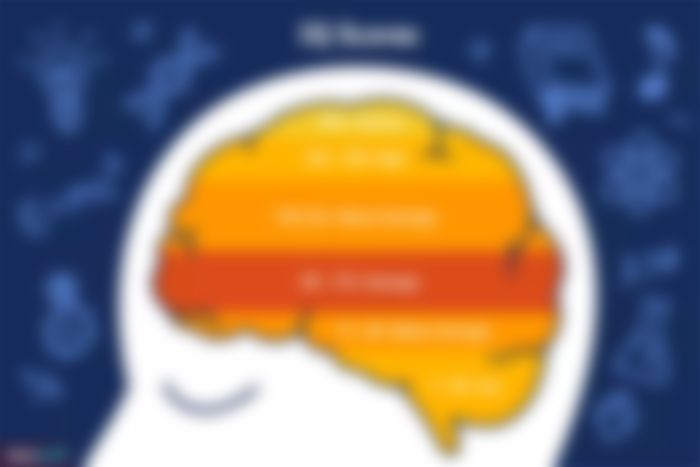Once upon a time there was a movie I watched. As Stephen Hawking says in the movie, an authentic intelligence is what can adapt to change. The Flynn effect is the name given to the increase in average IQ that has been extensively studied over the years. Studies conducted from 1938 to 2008, with a more optimistic point of view, estimate that the average IQ increased by more than 30 points. But in the last decade these numbers have flattened again and then actually started to decline. Perhaps more worrying about this situation is that experts are starting to believe that we are losing what is called "adaptive intelligence."

The idea that our intellectual abilities have decreased in recent years is disturbing, and this situation creates some additional thoughts. Perhaps the fact that we rely too much on technology affects certain skills such as problem solving, creative thinking, memorization, and even finding our way out without Google maps.

Yale University professor, author of the Triarchic Theory of Intelligence and one of the most outstanding scientists in his field, Robert J. Sternberg, argues that the problem is getting deeper. Sternberg believes that we have lost our ability to develop new strategies to react and adapt to changes.
Adaptive intelligence and how to develop it
Over the past decades, the understanding of what intelligence is and how people display intelligence has also changed significantly. Today, the most common tool used to measure intelligence is the measurement method known as the intelligence quotient or IQ.
There is also the idea that emotional intelligence and the theory of multiple intelligences, a concept that is in a highly controversial position and is highly criticized, is vital. So which theory do you think is correct? Some claim that all of these ideas are valid.

At the end of the day, people express intelligence through our creativity, problem-solving abilities, flexibility, and the way we understand and respond to other people.
Professor Sternberg, Earth to Humans: Get with it or get out! In his article Adaptive intelligence in the age of human-induced catastrophes, he explains a very interesting aspect of this debate: The scientist revisits this concept in this article. He argues that it's time to formulate and offer something more useful, and reveals what he calls adaptive intelligence.
More educated but have a lower IQ
As we mentioned at the beginning of the article, the Flynn effect peaked in 2008. After that, the average IQ began to decline. So, accordingly, are we getting more and more stupid over the years? The answer is probably not that simple. Dr. Sternberg believes we are too focused on teaching skills that are not very useful for modern needs.

In other words, today's problems may require skills that are not taught to anyone. Perhaps fractions, equations, knowing the names of all the rivers in Europe and which king conquered France in 1415, for example, doesn't help much to solve climate change.
Sternberg points out that we can no longer measure intelligence with a simple test or just think in terms of IQ. From this perspective, right now, there is a whole generation of incredibly well-educated people who have little to offer in solving what we might call the most pressing problems. So this is the reality we live in. The only perspective that is useful right now is adaptive intelligence, which is part of a concept that's not really new.
The pros and cons of adaptive intelligence
As Albert Einstein said and Stephen Hawking repeated: the only valid concept of intelligence is the ability to change. So no matter how difficult the changes are, the smart person will be the one who can adapt to the changes in his environment in an innovative way. It's all about being aware of the challenges we face in order to respond authentically and successfully.

Adaptive intelligence has a side that integrates all the processes, knowledge, skills, and abilities that help you not only cope with change, but take advantage of it and move forward. There is no doubt that this is a somewhat challenging process.
How to develop adaptive intelligence
To lay the foundation for adaptive intelligence, you need to turn a clean slate in many ways. This requires reformulation of many things you take lightly. It also includes being open-minded individuals who can criticize oneself and be aware of the needs, challenges and dynamics of the current context.
Here are some strategies you can use to activate your adaptive intelligence.
Stop using the past as a reference point
Everyone has a past, of course. No matter what your story is or what experiences you have had, you have to understand that what has already happened cannot be a useful reference point. What is happening today will be on a completely different basis. Therefore, if you base your actions on the past, it probably won't do you any good at doing so.
Instead, focus on building the future by taking risks and developing new skills.
Beyond expectations, keep going with uncertainty
Linear thought patterns and expectations are no longer useful phenomena for us. Thoughts like "I'm going to do this because I know this will happen and I can solve it this way" don't really work anymore. Now, because there is so much uncertainty in the world today, you cannot take anything lightly this way, based on your expectations and predictions.

It's time to let go of old mindsets and realize that things are changing. In the next period, the only way forward will be adaptation. Of course, we should make it clear at this point that adaptation doesn't just mean you will accept the status quo. Instead, it's actually a concept about understanding exactly what you're dealing with to transform your reality.





